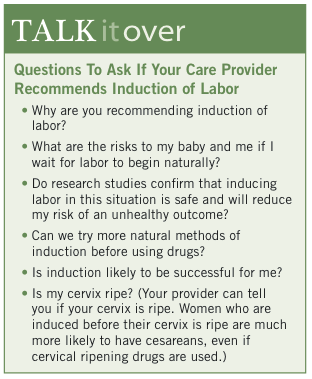I ask you to consider, what happens when we bypass the body’s natural ability to begin labor with love, and its ability to secrete peak levels of the hormone of love, oxytocin? Studies have shown oxytocin’s role in reducing pain. In my own state of NJ, Beverly Whipple, professor emeritus at Rutgers University, a famed author/sexologist found that when women masturbate to orgasm, “the pain tolerance threshold and pain detection threshold increased significantly by 74.6 percent and 106.7 percent respectively.”
In an interview in Wired magazine another colleague, Rutgers psychology professor Barry Komisaruk, said, “We’ve seen that there is a strong inhibition of the response to pain during orgasm. What that leads us to think is there is some kind of very important interaction between the orgasmic experience and the pain experience.”
We know that when women are induced with synthetic oxytocin they and their baby feel more pain. Labor contractions are much harder to manage and often require an epidural to manage pain. But what about other short and long term effects of not allowing our bodies to produce this essential hormone at peak levels? Synthetic oxytocin cannot cross the blood brain barrier. We not only loose its pain relieving effects, we miss the ecstatic, nurturing, bonding effects it offers to MotherBaby too.
These relatively new studies are key to our discussion in our documentary Orgasmic Birth and in my many talks and workshops about finding pleasure in birth and life. Sarah Buckley so exquisitely writes in her book, Gentle Birth Gentle Mothering “Passion and love are as powerful a combination at birth as they are in sexual activity. And in birth, as in sex, we release oxytocin, the hormone of love, in huge quantities from deep inside our brain. Here again, our hormones are directing us toward optimal and ecstatic experiences, yet this system is also extremely vulnerable to interference.”
What happens when we replace our natural hormones with synthetic hormones to begin or augment labor? We don’t know all the answers in either the short of long term for our babies and society but the question must be asked.
Dr. Buckley is the author or new Physiology Report due out next month that will provide more data and insights on how valuable our natural hormones our to keep childbirth safe, healthy and, I add… pleasurable!
Lamaze Healthy Birth Practices gives us great information and research on why allowing labor to begin on its own is so important! Lamaze International recommends that you neither choose induction nor agree to be induced unless there is a true medical reason. A “large” or even “very large” baby is not a medical reason for induction. Letting your body go into labor on its own almost always is the best way for you to know that your baby is healthy enough to be born. Spontaneous labor also increases the likelihood that you can experience the other healthy birth practices identified by Lamaze International that lead to a safe and healthy birth— especially freedom of movement and no routine interventions.

Amy Hannaford of Bellies & Birth comments: “Always, ask “why” when your care provider is recommending something or especially if you are being told you “have” to have an intervention, such as an induction. We normally would never let anyone do something to our bodies without our consent, so pregnancy and birth should be no different.”
Experiencing natural contractions, produced by your own body’s oxytocin, increases your freedom to respond to your contractions by moving around, changing positions, and trying the tub or shower. Interfering with or replacing the natural hormones that orchestrate labor, birth, breastfeeding, and maternal attachment may have consequences that we do not yet understand. So take the time to ask questions- its your right! Wishing you lots of love and oxytocin!
Please sign up for Debra’s enews to learn more about these studies as well as discuss many of the ways you can enhance the release of oxytocin in your labor and birth- finding more pleasure, reducing pain, and enhancing safety for you and your baby.

Leave a Reply